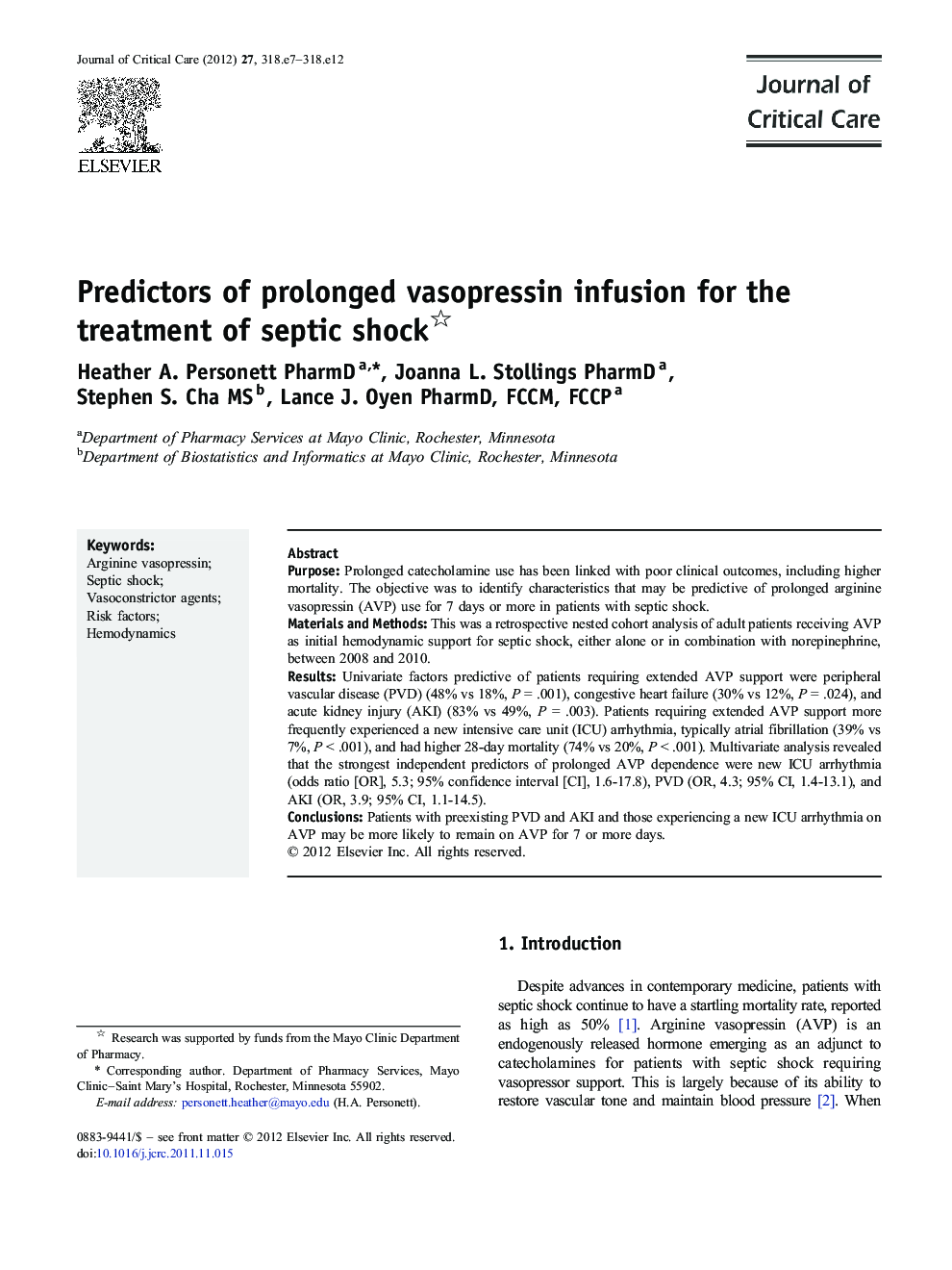| کد مقاله | کد نشریه | سال انتشار | مقاله انگلیسی | نسخه تمام متن |
|---|---|---|---|---|
| 5886385 | 1150932 | 2012 | 6 صفحه PDF | دانلود رایگان |

PurposeProlonged catecholamine use has been linked with poor clinical outcomes, including higher mortality. The objective was to identify characteristics that may be predictive of prolonged arginine vasopressin (AVP) use for 7 days or more in patients with septic shock.Materials and MethodsThis was a retrospective nested cohort analysis of adult patients receiving AVP as initial hemodynamic support for septic shock, either alone or in combination with norepinephrine, between 2008 and 2010.ResultsUnivariate factors predictive of patients requiring extended AVP support were peripheral vascular disease (PVD) (48% vs 18%, P = .001), congestive heart failure (30% vs 12%, P = .024), and acute kidney injury (AKI) (83% vs 49%, P = .003). Patients requiring extended AVP support more frequently experienced a new intensive care unit (ICU) arrhythmia, typically atrial fibrillation (39% vs 7%, P < .001), and had higher 28-day mortality (74% vs 20%, P < .001). Multivariate analysis revealed that the strongest independent predictors of prolonged AVP dependence were new ICU arrhythmia (odds ratio [OR], 5.3; 95% confidence interval [CI], 1.6-17.8), PVD (OR, 4.3; 95% CI, 1.4-13.1), and AKI (OR, 3.9; 95% CI, 1.1-14.5).ConclusionsPatients with preexisting PVD and AKI and those experiencing a new ICU arrhythmia on AVP may be more likely to remain on AVP for 7 or more days.
Journal: Journal of Critical Care - Volume 27, Issue 3, June 2012, Pages 318.e7-318.e12